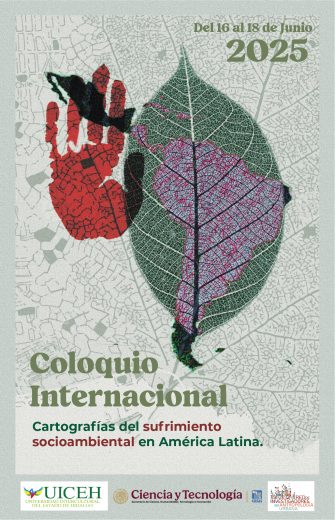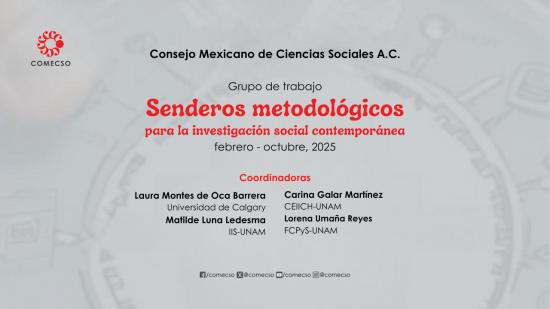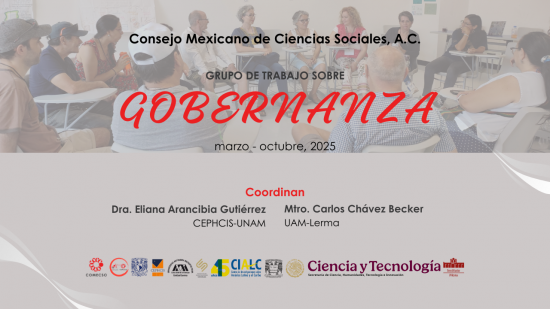Social Movements and Trade Unionism
Guest Editors
Francisco Fernández-Trujillo (UNED, Spain),
Gomer Betancor (UNED, Spain),
& Miguel Martínez Lucio (University of Manchester, UK)
Over the last two decades, the proportion of workers in trade unions has been declining across Europe. The change reflects developments such as the emergence of a new decentralized and outsourced model of capitalism that has undermined the more organized and stable forms of workplace around which organized labour was previously active and able to develop. The emergence of new business models in the economy, the introduction of new technologies at work, and the proliferation of atypical forms of relations between workers and their ‘company’ have led to a proliferation of new realities and challenges in the labour market that have generated difficulties in the implementation of traditional trade union tools and repertories. In addition, the reasons for the progressive decline in the levels of labour strikes have been the subject of various academic debates: although this decline varies according to the national context. Among macrosocial causes, the continuing decline of heavy and traditional industries has contributed to the relative disappearance of traditionally cohesive working-class communities. In addition, while globalization in the shape of mobile and powerful multinational corporations ‒ and the deregulation of worker and social rights ‒ has reduced trade union power (broadly speaking in terms of strike rates and the effectiveness of national union structures), we have nonetheless also seen incumbent trade union bureaucracies themselves constraining or not supporting new forms of worker activity as they seek to maintain more traditional and institutional forms of engagement with the state (Piazza, 2010) although there has been some discussion of the nature of union revitalisation in recent years (Murray, 2017). Some have therefore suggested that the relatively institutionalized role of traditional unions and their growing distance from grassroots organizing and social movements helps explain the low levels of labour protest in the EU (Martin & Ross, 2001; Gajewska, 2008). In addition, although we are beginning to see significant changes in work- and employment-related politics, it is the national context (in terms of a country’s legislation, economic structures, trade union political identity, and specific labour market institutions) that remains the key arena for researchers studying patterns of trade union and labour protest across European countries.
Many new social movements and non-government organizations have, therefore, been encroaching on, and influencing, issues of work and employment. Examples include the organisations related to the living wage campaign in the UK, equal rights questions in many contexts as highlighted by organisations such as Stonewall, and health and safety at work issues raised by various organizations dealing with mental health such as MIND in the UK. While some of these social movements or social organisations appear to be acting as quasi-trade unions, in other cases new forms of minority trade unionism seem to be drawing on more radical social movements to develop a social protest framework and identity (Stewart, 1996; Waterman, 1999; Heery et al., 2012). We are also seeing new forms of organizing around community unionism and worker networks that are using hybrid forms of local-level social movement activism and social networks. There is also a push towards new radical forms of trade unionism which contribute to this too (Connolly, 2010; Connolly and Darlington, 2012). In effect, the boundaries between the sphere of employment and work, on the one hand, and society and community, on the other, are being eroded. Indeed, there are increasingly alliances and joint mobilisation campaigns between trade unions (especially minority unions) and social movements, which combine resources and political cultures to enhance labour rights mobilisations. The implications of these new forms of radicalization and their potential to create a less state-oriented system of social movement and labour activism require greater academic attention (Martínez Lucio and Perrett, 2009).
In this situation different social initiatives are emerging related to workers’ rights, working conditions, and economic models themselves. These range from traditional forms of political mobilization and institutionalized trade union engagement through to mechanisms that could be considered innovative and more de-centred ‒ and participative ‒ than the traditional forms and practices of trade unionism. These new innovative developments can be seen in the form of more public- and media-facing conflict strategies, increasingly strategic engagement with a variety of social media (Geelan and Hodder, 2017), the use of new social and organizational participative forms and structures, and a new set of sociological categories of worker activists and networks that are beyond, or on the fringes of, the traditional remit of the ‘organized’ labour movement (see Standing, 2012).
Examples can be seen in increasing levels of autonomous struggles and mobilizations by delivery workers, the online organization of workers in digital platforms, the organization of workers in new economic sectors with little legal regulation, or the emergence of more flexible organizations that mobilize for working conditions in atypical and highly feminised sectors such as the hospitality industry or domestic work. Many of these new forms of organization draw from the models associated with social movements and are more broadly based than trade unions thus requiring a broader understanding of worker representation and agency (see Alberti and Peró, 2018). These forms of mobilization in the workplace have been termed ‘social movement unionism’, ‘new union movements’ or ‘Sindicalismo 4.0’. In addition, we are seeing social movement-based organisations and various non-government organizations beginning to highlight the problems of work in the contemporary economy, encroaching into the space of organized labour, and creating new forms of discourses and practices in relation to workers’ rights (e.g., equality-related struggles and ‘wellbeing’ campaigns). These new initiatives are responding to the new realities of work, to the appearance of specific forms of employment in the development of labour activity, and to the changing and now often indirect relationship between companies and ‘their’ workers. Many of them are, nevertheless, in some cases reproducing some of the bureaucratic characteristics of parts of the more established labour movement.
Potential topics to be considered:
- Understanding trade unions as social movements by focusing on new configurations and strategies within employment relations.
- Social movements and their changing role in relation to employment relations and work more generally in terms of their form and focus.
- The changing nature of work-related mobilization and the role of public/social spaces and broader social dynamics.
- Collaboration and competition between social actors within the spheres of work and the social realm.
- Local spatial linkages in the community across social and work-related struggles and organisations (e.g. community unionism and its legacies)
- Theories of mobilization and identity relevant to the debate on changes in social movements and worker representation, together with other theoretical perspectives for understanding the changing boundaries between them.
- How can theory of social movements be of use in the study of trade unions and employee relations
- New forms of labour conflicts and patterns of mobilization within trade unions and social movements related to work.
- The dissemination, mutual learning, and adaptation of repertoires and action strategies between trade unions and social movements regarding mobilisation and industrial conflicts.
- New voices and hybrids within social action networks related to work and its social context, e.g., the role of ethnic or gender networks as links and networks across these work and social spaces.
- The adaptation and generation by large or established unions of new resources relating to new forms of social action and social movements.
- The pattern of diffusion and collaboration between traditional forms of organisations such as trade unions and new social movements regarding social rights
- Theoretical reflections on the interaction between new forms of worker organisations and the agendas, and activities, of both new (and ‘newest’) social movements
- The emergence of new forms of social unionism in response to new economic, social, and political realities.
All submissions will be refereed. For details related to the submission of your article please access the journal homepage: https://www.emeraldgrouppublishing.com/journal/er
Timeline
- Submission start date- July 11 2021
- Submission deadline for full papers- November 30, 2021
Bibliography:
Alberti, G., & Però, D. (2018). Migrating industrial relations: migrant workers’ initiative within and outside trade unions. British Journal of Industrial Relations, 56(4), 693-715.
Connolly, H. (2010). Renewal in the French trade union movement: A grassroots perspective Peter Lang.
Connolly, H., & Darlington, R. (2012). Radical political unionism in France and Britain: A comparative study of SUD-Rail and the RMT. European Journal of Industrial Relations, 18(3), 235-250.
Gajewska, K. (2008). The emergence of a European labour protest movement? European Journal of Industrial Relations, 14(1), 104–121.
Heery, E., Williams, S., & Abbott, B. (2012). Civil society organizations and trade unions: cooperation, conflict, indifference. Work, Employment and Society, 26 (1), 145‒160.
Geelan, T., & Hodder, A. (2017). Enhancing transnational labour solidarity: the unfulfilled promise of the Internet and social media. Industrial Relations Journal, 48(4), 345-364.
Malo, Miguel Ángel (2018) Nuevas formas de empleo: del empleo atípico a las plataformas digitales. Papeles de economía española, 156, 146‒158.
Martin, A., and Ross, G. (2001) Trade union organizing at the European level: The dilemma of borrowed resources. In: Imig, D., and Tarrow, S. (eds), Contentious Europeans: Protest and Politics in an Emerging Polity. Rowman & Littlefield, Lanham, MD, pp. 53–76.
Martínez Lucio, M., & Perrett, R. (2009). Meanings and dilemmas in community unionism: trade union community initiatives and black and minority ethnic groups in the UK. Work, Employment and Society, 23(4), 693‒710.
Murray, G. (2017). Union renewal: what can we learn from three decades of research? Transfer: European Review of Labour and Research, 23(1), 9-29.
Piazza, J.A. (2010) Globalizing quiescence: Globalization, union density and strikes in 15 industrialized countries. Economic and Industrial Democracy, 26, 289–314.
Standing, G. (2012). Book review response: Guy Standing, The Precariat: The New Dangerous Class. Work, Employment & Society, 26(4), 690-692.
Waterman P. (1999). The New Social Unionism: A New Union Model for a New World Order. In Munck, R. & Waterman, P. (eds) Labour Worldwide in the Era of Globalization Alternative Union Models in the New World Order, pp. 247‒264. New York: St. Martin’s Press.
Stewart, P. (2006). Marginal movements and minority struggles? The case of the Japanese minority social and labour movements. The Sociological Review, 54(4), 753‒773.
Te puede interesar

Publicaciones del COMECSO
Roberto Holguín Carrillo - Ene 08, 2025Este espacio reúne la gran mayoría de la producción editorial de nuestra asociación. A lo largo de casi cinco décadas,…

Historia del Cine: La comedia en blanco y negro (1930-1960)
Laura Gutiérrez - Abr 04, 20251) Título de la actividad académica: Curso Historia del Cine: La comedia en blanco y negro (1930-1960). Antecedentes. La comedia…

Cartografías del sufrimiento socioambiental en América Latina
Laura Gutiérrez - Abr 04, 2025Coloquio Internacional Cartografías del sufrimiento socioambiental en América Latina Del 16 al 18 de junio de 2025 Modalidad virtual Presentación…

Foro Internacional, vol. LXV, núm. 2
Laura Gutiérrez - Abr 04, 2025Foro Internacionales una revista académica publicada por el Centro de Estudios Internacionales de El Colegio de México. Fundada en 1960…











Pingback: For better or worse, unions have always taken a stand on global issues - HR News Canada